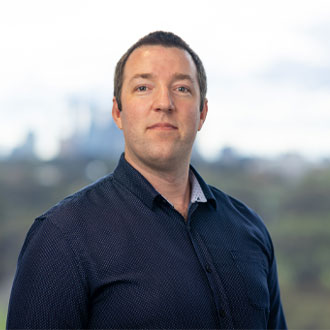Dr Corey Giles
BSc(Hons) | PhD, Curtin University of Technology

Head: Systems Medicine and Bioinformatics
La Trobe University supervisor
University of Melbourne supervisor
My ORCID iD
NHMRC Emerging Leadership Fellow
+61 3 8532 1536 corey.giles@baker.edu.auI lead a team that's redefining how we understand and treat cardiovascular disease, type 2 diabetes and metabolic conditions. Using systems medicine, we view human health as an interconnected network rather than isolated risk factors — and that shift in perspective is unlocking entirely new ways to predict, prevent and treat disease.
We integrate biobank-scale data with multi-omics technologies — genomics, metabolomics, lipidomics, proteomics — to reveal the molecular architecture of disease at unprecedented resolution. But we don't stop at identifying patterns. Our focus is on discovering the causal drivers of disease and translating those discoveries into clinical tools that work in the real world.
The Systems Medicine and Bioinformatics lab is pioneering artificial intelligence approaches that decode the fundamental rules of human metabolism from vast datasets. We're building patient-specific digital twins that simulate individual health trajectories and test treatment scenarios in silico before they reach the clinic. This is precision medicine at scale — combining computational power with biological validation to deliver genuinely personalised care.
What drives our work is a commitment to impact. We're developing risk prediction tools, therapeutic targets and diagnostic strategies that clinicians can implement today. Working with computational biologists, data scientists and clinical researchers, we're bridging the gap between statistical models and biological mechanisms — ensuring our discoveries translate into better patient outcomes.
Systems medicine gives us the framework to tackle complex diseases the way they actually exist: as dynamic, interconnected systems. That's how we'll deliver the next generation of cardiovascular and metabolic care.

